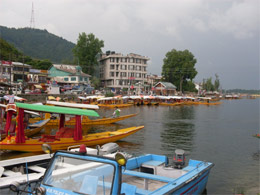New Delhi, Jun 7: India registered its highest single-day spike of COVID-19 cases for the fifth consecutive day on Sunday, with 9,971 new infections taking the country's tally to 2,46,628, while the death toll rose to 6,929, according to the Union Health Ministry.
India registered 287 deaths in the 24 hours since Saturday morning.
India had raced past Spain on Saturday to become the fifth worst-hit nation by the COVID-19 pandemic. Now, only the US, Brazil, Russia and the UK are ahead of it.
The number of active COVID-19 cases stands at 1,20,406, according to the Health Ministry.
A total of 1,19,292 people have recovered and one patient has migrated, the Ministry said.
During the last 24 hours, a total of 5,220 COVID-19 patients have been cured, the ministry said.
"Thus, around 48.37 per cent patients have recovered so far," a senior ministry official said.
The tally of confirmed cases includes foreigners.
The Indian Council of Medical Research has further ramped up the testing capacity for detecting the novel coronavirus in infected persons.
The number of government labs has been increased to 531 and private labs to 228, taking the total number of labs to 759.
As many as 1,42,069 samples were tested in the last 24 hours, taking the total number of samples tested till now to 46,66,386.
Deaths in India per lakh population (0.49) are much lower than the world average of 5.17 and are the lowest among countries that have eased lockdown such as Germany (10.35), Italy (55.78), the UK (59.62) and Spain (58.06), as per a WHO situation report cited by the Health Ministry.
Cases in India per lakh population (17.32) are much lower than the world average of 87.74 and are the lowest among countries that have eased lockdown such as Germany (219.93), Italy (387.33), the UK (419.54) and Spain (515.61).
Of the 287 deaths reported since Saturday morning, 120 were from Maharashtra, 53 from Delhi, 29 from Gujarat, 19 from Tamil Nadu, 17 from West Bengal, 15 from Madhya Pradesh, 13 from Rajasthan, 10 from Telangana, three from Jammu and Kashmir, two each from Karnataka, Punjab and Chhattisgarh and one each from Kerala and Bihar.
Of the total 6,929 fatalities, Maharashtra tops the tally with 2,969 deaths, followed by Gujarat with 1,219 deaths, Delhi with 761, Madhya Pradesh with 399, West Bengal with 383, Uttar Pradesh with 257, Tamil Nadu with 251, Rajasthan with 231, Telangana with 123 and Andhra Pradesh with 73 deaths.
The death toll reached 59 in Karnataka and 50 in Punjab.
Jammu and Kashmir has reported 39 fatalities due to the disease, Bihar has 30, Haryana has 24 deaths, Kerala has 15, Uttarakhand has 11, Odisha has eight and Jharkhand has reported seven deaths so far.
Himachal Pradesh and Chandigarh have registered five COVID-19 fatalities each. Assam and Chhattisgarh have recorded four deaths each.
Meghalaya and Ladakh have reported one COVID-19 fatality each, according to the Health Ministry data.
According to the Ministry's website, more than 70 per cent of the deaths are due to comorbidities.
The highest number of confirmed cases in the country are from Maharashtra at 82,968, followed by Tamil Nadu at 30,152, Delhi at 27,654, Gujarat at 19,592, Rajasthan at 10,331, Uttar Pradesh at 9,733 and Madhya Pradesh at 9,228, according to the Health Ministry data updated in the morning.
The number of COVID-19 cases has gone up to 7,738 in West Bengal, 5,213 in Karnataka, 4,915 in Bihar and 4,510 in Andhra Pradesh.
It has risen to 3,952 in Haryana, 3,496 in Telangana, 3,467 in Jammu and Kashmir and 2,781 in Odisha.
Punjab has reported 2,515 coronavirus infections so far, while Assam has 2,397 cases. A total of 1,807 people have been infected with the virus in Kerala and 1,303 in Uttarakhand.
Jharkhand has registered 1,000 cases, Chhattisgarh has 923, Tripura has 747, Himachal Pradesh has 400, Chandigarh has 309 cases, Goa has 267, Manipur has 157, Nagaland has 107, and Puducherry and Ladakh have 99 cases.
Arunachal Pradesh has 47 COVID-19 cases, while Andaman and Nicobar Islands and Meghalaya have registered 33 infections each.
Mizoram has reported 24 cases and Dadar and Nagar Haveli has 19 cases, while Sikkim has reported seven cases till now.
"8,605 cases are being reassigned to states," the Ministry said on its website adding, "our figures are being reconciled with the ICMR."
State-wise distribution is subject to further verification and reconciliation, it added.






Comments
Add new comment